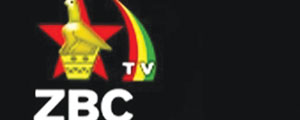
Media reports of late have shown that many Zimbabweans are failing to pay Zimbabwe Broadcasting Corporation (ZBC) radio and television licences costing $30 and $50 respectively.
Report by Veneranda Langa, Senior Parliamentary Reporter
Arguments that have arisen over the failure to pay the licences range from that the State broadcaster’s programming was poor and biased, and also that the majority of Zimbabweans cannot afford the fees because of economic challenges.
Those who have been arraigned before the courts include Chinhoyi Caves Motel, which was accused of prejudicing ZBC of $2 200 in unpaid television licence fees for 22 television sets.
The motel was charged with contravening Section 38 of the Broadcasting Services Act, but they argued there was no ZBC transmission in the area and they accessed satellite television instead.
A Harare businessman, Bernard Wekare, recently dragged ZBC to the Supreme Court, arguing the State broadcaster infringed on people’s constitutional rights by demanding licence fees and yet it was possible that they did not watch or listen to the national broadcaster’s programmes.
Media lawyer Wellington Pasipanodya said ZBC were acting along the confines of the law to demand viewer and listenership licences.
- Chamisa under fire over US$120K donation
- Mavhunga puts DeMbare into Chibuku quarterfinals
- Pension funds bet on Cabora Bassa oilfields
- Councils defy govt fire tender directive
Keep Reading
“ZBC is a creature of statute and is mandated in terms of the law to collect licence revenue, for not only use, but for mere possession of the radio or television, and it makes everybody liable to pay a fee in terms of the law,” said Pasipanodya.
“This is standard practice all over the world that everyone should pay a licence fee to a State broadcaster. However, ZBC licence fee pricing is a bit on the exorbitant side and there is need to consult the public because $50 is beyond their reach.”
Pasipanodya said although everyone was compelled to pay ZBC licences, the monitoring and enforcement mechanisms to follow up on whether people complied were very poor.
“The enforcement mechanisms are not really efficient because their (ZBC) systems are not computerised. They use manual systems and it is difficult to follow up on those who would have paid or not. If their systems were computerised, it was going to be easy to catch those who breach the Broadcasting Licences Act,” Pasipanodya said.
Chairman of the Parliamentary Portfolio Committee on Media, Information and Communication Technology and Mbizo MP Settlement Chikwinya said the law that provided for ZBC to collect licence fees was inconsistent with the current affairs obtaining where listeners and viewers had access to and choice of other radio and television stations.
“The licencing structure itself is absurd, it means if one has a radio, a TV and a laptop in his house, that person must possess three licences, one for each gadget capable of receiving air waves. There is no need at all for ZBC to collect licences fees as ZBC should obtain revenue from advertisements if it wants to be commercial or should receive funding from the fiscus,” Chikwinya said.
“If it is to be a public broadcaster in its true sense, it should serve the public interest rather than being a partisan broadcaster. People will be jailed if we do not change the law, especially the clause that makes it mandatory to licence a broadcasting gadget, meaning you can be jailed for possessing a cellphone or laptop without a radio licence.”
Media Institute of Southern Africa director and media lawyer Nhlanhla Ngwenya said there were cases of people arrested for failure to pay ZBC radio and television licences, although most cases were not reported.
“The issue is not really that Zimbabweans cannot afford to pay $50 licence fees because most Zimbabweans can afford to pay DStv bouquets which are charged monthly. The issue is on the quality of services that Zimbabweans are getting from ZBC. Their poor quality of programming means their licence fees become a punishment,” Ngwenya said.
“I would recommend an overhaul of ZBC content so that it is fully transformed into a public broadcaster. If that happens, Zimbabweans will pay for their licences voluntarily. Currently, ZBC represents a certain public because they have been turned into a broadcaster serving narrow political partisan interests and there is no justification to force Zimbabweans to pay.”
ZBC public relations manager Sivukile Simango said it was not justified for people to complain.
“Why do people think it is not justified to charge $50 per year for TV licences when they can pay $73 per month for DStv? We did due diligence before coming up with $50 because it is very expensive to produce a television programme, cover a live soccer match, a gala or even produce a drama. We have to pay the crew, meet fuel costs, hotel costs and so on to produce the programmes,” said Simango.
He said ZBC was able to monitor if people were complying with the law and paying their radio or television licences because they worked with the police.











